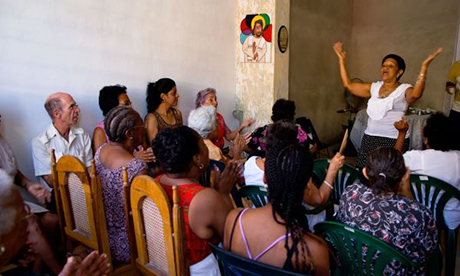A worldwide group of 27 theologians and preachers urged the Catholic Church to consider allowing qualified laypeople to deliver homilies during Mass.
The group submitted their proposal during a synodal symposium titled “The Pastoral Charge for Lay Catholic Eucharistic Preaching in the Catholic Church”.
The theologians believe that incorporating qualified lay leaders into preaching aligns with the vision of a “synodal Church”, a Church where all voices are valued and contribute to the life of the community.
They argue that such an approach would address the urgent need for a “more effective proclamation of the Word” and foster a more inclusive and representative Church.
Father Gregory Heillie OP hosted the event. He is a Professor of Preaching and Evangelisation and Director of the Doctor of Ministry in Preaching programme at St Louis’ Aquinas Institute of Theology.
“Qualified lay leaders have an increasingly relevant message to share” Heillie said.
“Giving them voice at the Eucharist gives the Church credibility, calls us all to discipleship, and can greatly help clergy at a time of pastoral need.”
More Catholics, fewer priests
The group’s proposal comes at a critical juncture as the latest Vatican statistics reveal a concerning decline in the number of priests and seminarians worldwide.
While the Catholic Church continues to experience growth, with a global increase of 14 million baptised members in 2022, the number of priests and those training for the priesthood steadily decreases.
The decline is particularly evident in Europe and the Americas. This trend significantly challenges the Church’s ability to fulfil its mission.
The proposal outlines a two-pronged approach: expanding existing lay ministries to encompass preaching duties and creating a new, dedicated ministry for lay preachers.
Proponents believe this would allow the Church to tap into the “increasingly relevant message” of lay leaders and enhance its credibility within communities.
The theologians emphasise that the Church must actively “discern charisms among the baptised” and recognise the unique gifts and talents within the lay community.
By embracing these gifts and allowing qualified laypeople to share their perspectives through preaching, the Church can move closer to realising its synodal identity.
Sources
